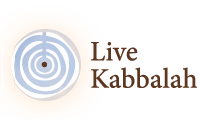The Zohar contends with the issue of “Tahnunim” (pleas for mercy), and responds by bringing up the story of King Hezekiah who was on a very high spiritual level, but chose not to marry despite being told to; the reason for this was that he envisioned through the Holy Spirit that he would produce an evil son. As a result, Hezekiah became ill, and the prophet Isaiah told him that it was decreed that he would die because he did not carry out the precept of matrimony. It is written, following the prophet’s leaving the palace: “Then Hezekiah turned his face to the wall, and prayed unto the Lord” (Isaiah 38:2).
The Zohar explains the power of the Torah, the “Tree of Life” for those who follow. The Torah teaches a person to walk the path of truth, i.e., to connect with who he truly is, so that, even if death has been decreed upon him it will be null and void. One should therefore immerse oneself in Torah (rather than only learn) day and night, and implement its laws.
Hezekiah had to humbly accept the ruling and understand that although he is imbued with the Holy Spirit, he nonetheless does not see the big picture. When he realizes this he surrenders his stance of being right and knowing, and begins to pray with the intent of connection and wholeness rather than remain stubborn over an egocentric request from the Creator. We learn here what it means to “beseech”—to connect with the Light of the Creator and return to ourselves.
When prayer comes from a place of anger, fear, frustration, a sense of victimization and selfishness, the likelihood of getting what we want is very slim. We need to connect to a place of receiving with the intent of making a difference, to a place of love and joy, of conviction in the Light and in “loving thy neighbor as thyself”. Therefore, “Then Hezekiah turned his face to the wall, and prayed unto the Lord”—when he relinquishes what he thinks is just and instead connects to the Light unconditionally and with no ulterior motives, a miracle happens that changes the order of Creation. He receives another fifteen years of life and saves Jerusalem from defeat at the hands of the Assyrian army.
The purpose of the supplication prayer is to change us, change the one who is praying, and not the Creator. It is to enable us to grow and change the patterns by which we have been living and acting on. This, first and foremost, is the focus in parashat Va’Ethanan – the personal change that, if we haven’t managed to effect, will keep us stuck in the very situation from which we want to extricate ourselves. Over and over, until we return to ourselves.
Parashat Va’Et’hanan brings up two important points – “Shema Yisrael” and “The Ten Utterances” (known by mistake as the Ten Commandments).
The Zohar explains that the core of the “Shema Yisrael” prayer is the uniqueness in the name of G-d above and below. As each of the parts of our body has its function and connects to the activity of life, so it is with the world. Each one of us is a cell in the whole, in all of humankind. The purpose of the “Shema Yisrael” prayer is to connect our world with the abundance of the Upper Worlds, so that there is a constant flow of abundance from above. If we do not have the proper intent while praying the “Shema Yisrael”, the abundance does not reach us. As in the body the formation of a blockage prevents the flow of blood from reaching vital organs and impairs their functioning, in the world an obstruction manifests by way of destruction and disasters.
The “Ten Utterances” were revealed to the Israelites at a time of unity and harmony, as is written in Exodus “and the Israelites camped there by the mount”; the form of the verb “camped” in the Hebrew scripture is in the singular, as one body, one unit. In like manner, it is interpreted that the word inscribed in the passage “were inscribed on the tablets” should be read “liberated”: The word “harut” ( that could be understood by mistake as ‘inscribed’ חרוט), however, the sages point at the fact that the word is חרות “herut” – Freedom, Liberation, teaching us that we can be liberated from the angel of death through unity and oneness.
The moment that we form the connection with all the parts of our body, between ourselves and our surroundings, and with the upper Sephirot, the channels of energy, we then experience being one with all, the sense of “Shema Yisrael”. It is the power of life and freedom on the tablets. The power of prayer and true connection to ourselves and the purpose of our lives – the power of parashat Va’Et’hanan.
To listen to the weekly Zohar Study click here
For additional study on Va’Et’hanan and other portions enter Live Kabbalah University
